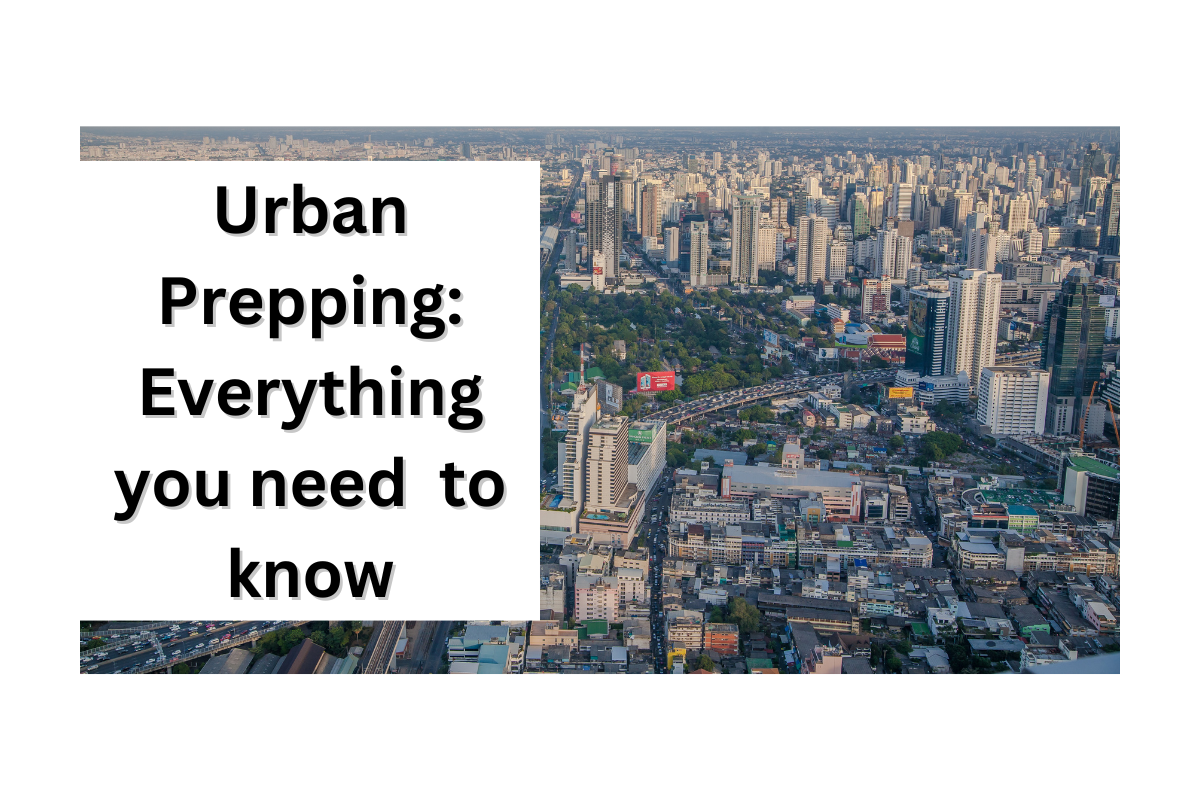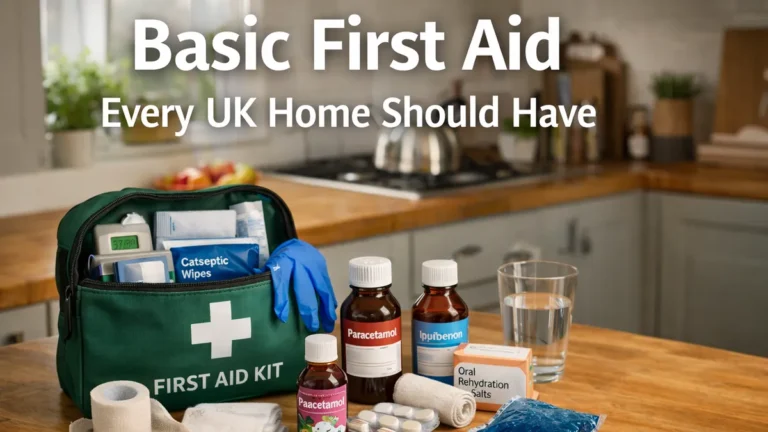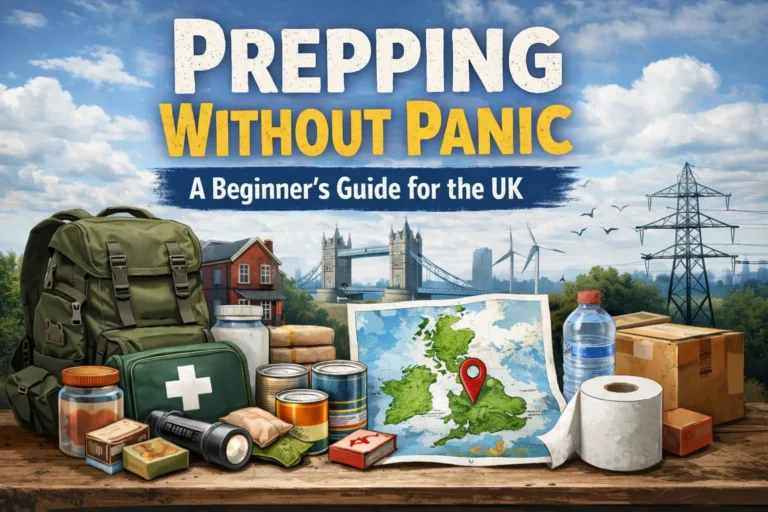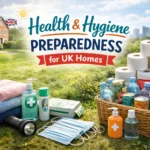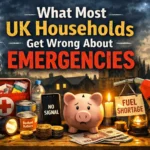Urban prepping is a crucial aspect of survival in today’s fast-paced urban environments. Living in a city comes with unique challenges that require a tailored approach to emergency preparedness. As an urban prepper, understanding the importance of being ready for unexpected situations is paramount.
In urban settings, space constraints and reliance on external resources can hinder one’s ability to respond effectively to emergencies. Urban prepping involves preparing for disruptions to infrastructure, services, and supply chains that are common in cities during crises.
From natural disasters to urban unrest, city dwellers face a variety of potential threats that necessitate proactive planning and readiness. By equipping oneself with the necessary skills, supplies, and knowledge, urban preppers can navigate challenging situations with resilience and resourcefulness.
In my upcoming blog post, I will delve into the intricacies of urban prepping, exploring the best practices, essential tips, and key considerations for preparing for emergencies in an urban environment. Stay tuned to discover how you can enhance your readiness and ensure your safety in the midst of urban chaos.
Post Contents
ToggleBasic Survival Needs
In any urban prepping scenario, understanding the basic survival needs of water, food, and shelter is fundamental. These essentials form the foundation of preparedness for any emergency situation, ensuring you can sustain yourself and your loved ones in times of crisis.
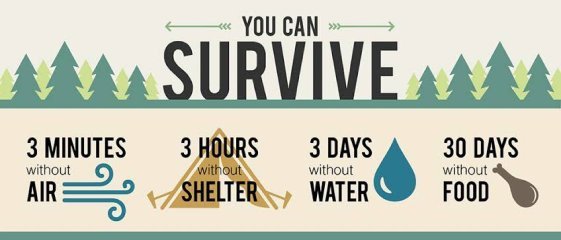
Water
Water is a critical element for survival, and it’s imperative to have a reliable supply during emergencies. Storing water in advance is essential. You should aim for at least one gallon of water per person per day to cover drinking, cooking, and sanitation needs. Consider storing water in appropriate containers like clean plastic bottles or water storage tanks that are specifically designed for long-term storage. Additionally, knowing how to purify water using methods such as boiling, water purification tablets, or portable filters can provide a secondary source of clean water during emergencies.
Food
Stocking up on non-perishable food items is crucial for urban prepping. Consider including items like canned goods, dried fruits, nuts, granola bars, and ready-to-eat meals in your emergency food supply. It’s advisable to have a diverse selection of foods to ensure nutritional balance and variety. When planning meals for long-term emergency scenarios, focus on high-calorie options that can sustain energy levels. Rationing food supplies and meal planning can help stretch resources and ensure you have enough food to last through extended periods of uncertainty.
Shelter
Creating a secure shelter is vital for urban prepping. Fortifying your home by securing doors and windows, reinforcing weak points, and having emergency repair supplies on hand can enhance your safety during crises. In case of evacuation, it’s essential to have alternative shelter options identified beforehand. This could include arrangements with family or friends outside the affected area, knowledge of nearby emergency shelters, or even having a fully stocked emergency shelter kit ready to go at a moment’s notice.
By focusing on these basic survival needs of water, food, and shelter, you can establish a solid preparedness foundation for urban prepping. Prioritizing these essentials and having a well-thought-out plan in place will increase your resilience and readiness to face any unforeseen circumstances that may arise. Stay proactive, stay prepared.
Emergency Supplies and Kits
In uncertain times, having a well-prepared emergency supplies kit can make all the difference in maintaining safety and comfort during unforeseen situations. Let’s delve into essential items one should include in their urban prepping kit to ensure readiness for any emergency.
First Aid Kit
A crucial component of any emergency supplies kit is a well-stocked first aid kit. When assembling your kit, be sure to include basic medical supplies such as bandages, gauze, adhesive tape, antiseptic wipes, and over-the-counter medications for common ailments. It’s also important to consider any specific prescription medications that members of your household may need and ensure an ample supply is available. Properly managing medications and prescriptions in your kit can help address medical needs efficiently during emergencies.
Emergency Toolkit
An emergency toolkit is essential for handling minor repairs and promoting self-reliance in urban prepping scenarios. Your toolkit should include versatile tools that can serve multiple purposes. Items such as a multi-tool, duct tape, a flashlight, batteries, a whistle, and a small fire starter can be invaluable in various emergency situations. Having these tools readily available can empower you to address unforeseen challenges effectively and foster a sense of preparedness.
Hygiene and Sanitation
Maintaining personal hygiene and proper sanitation practices is paramount during emergencies to prevent the spread of illness and maintain overall well-being. In your emergency supplies kit, include items such as hand sanitizer, soap, toothbrushes, toothpaste, feminine hygiene products, and garbage bags for waste disposal. Proper hygiene practices coupled with effective waste management techniques can contribute significantly to ensuring a hygienic and safe environment in emergency situations.
By prioritizing the inclusion of a well-equipped first aid kit, a versatile emergency toolkit, and adequate hygiene and sanitation supplies in your urban prepping supplies, you can enhance your preparedness for unforeseen circumstances and bolster your resilience in challenging times.
For additional resources on building comprehensive emergency kits, Ready.gov offers detailed insights into assembling a disaster supplies kit tailored to your household’s needs. Shore up your emergency readiness today to safeguard yourself and your loved ones in times of crisis.
Communication and Navigation
Staying connected and informed is vital during urban emergencies. Being prepared with the right communication devices and navigation tools can ensure you’re equipped to handle unexpected situations effectively.
Emergency Communication Devices
In urban prepping, having reliable communication devices is crucial. Consider including radios, satellite phones, and backup power sources in your emergency kit. Radios can help you stay updated on news and alerts, while satellite phones provide a communication lifeline even when traditional networks are down. Backup power sources like portable chargers or solar panels ensure your devices remain operational when electricity is scarce. Establishing a communication plan with loved ones is also essential. Agree on meeting points or check-in times to ensure everyone’s safety and coordination during emergencies.
Navigation Tools
Navigating through urban environments during emergencies requires proper tools and knowledge. Maps, compasses, and GPS devices are indispensable for finding your way and reaching designated safe zones or evacuation routes. Understanding how to read maps and use compasses can help you navigate without relying on electronic devices that may fail in critical situations. Familiarize yourself with your city’s layout, emergency exits, and alternate routes to quickly adapt to changing circumstances.
To delve deeper into navigation basics for preppers and urban navigation tools, check out resources like Navigation Basics for Preppers: Preparing for Grid Down and 5 Essential Tools for Urban Navigation.
By prioritizing communication and navigation preparedness in your urban prepping efforts, you can enhance your resilience and readiness to tackle unexpected challenges effectively.
Personal Protection and Security
Living in an urban environment comes with its unique set of challenges, and ensuring personal safety is paramount. In this section, I will delve into effective strategies for personal protection and security in urban settings.
Self-Defense Tools
When it comes to personal protection in urban environments, having the right self-defense tools can make a significant difference. It’s essential to explore legal and appropriate options for self-defense, including training and responsible use. Consider enrolling in self-defense classes or workshops to equip yourself with the necessary skills to handle unforeseen situations confidently.
Additionally, pepper spray, personal alarms, and tactical flashlights are effective tools that can help deter potential threats and provide you with a sense of security when navigating urban areas. Remember, proper training and understanding the laws surrounding self-defense tools are crucial to ensure your safety and the safety of those around you.
For more insights on urban prepping and self-defense tools, you can explore resources like TheUrbanPrepper’s YouTube channel, offering valuable tips and gear reviews tailored for urban preparedness.
Home Security Measures
Securing your home in an urban setting is vital to safeguarding your belongings and ensuring peace of mind. Implementing effective home security measures can help deter threats and intruders. Start by fortifying your home entrances with sturdy locks and consider installing security cameras to monitor any suspicious activities.
Furthermore, securing windows with additional locks or bars and keeping valuables out of sight can reduce the risk of break-ins and theft. Motion-activated lights and alarm systems are practical additions to enhance your home security and alert you to any potential dangers.
For further guidance on enhancing home security in urban environments, Planet Natural provides valuable insights into city living and prepping, offering practical tips to fortify your home against security threats.
By incorporating these self-defense tools and home security measures into your urban prepping routine, you can better protect yourself and your loved ones in an ever-changing urban landscape. Stay informed, stay prepared.
Remember, proactive measures and a vigilant mindset are key components of urban prepping to ensure your safety and security in any situation.
Financial and Legal Preparedness
Financial readiness and understanding legal considerations are crucial aspects of urban prepping. Being prepared financially can ensure that you have the resources needed to face unexpected urban emergencies. It is also essential to be aware of the legal implications that may arise during such situations to avoid any legal pitfalls.
Emergency Funds and Documentation
Having accessible emergency funds is a cornerstone of urban prepping. Maintaining an emergency fund that covers living expenses for at least three to six months can provide a safety net during unforeseen events. It’s important to securely store important documents such as identification papers, insurance policies, and financial account information. Consider creating digital backups stored in a secure cloud service for easy access in emergencies.
Ensuring that you have quick access to emergency funds can make a significant difference during urban crises. By having liquid savings readily available, you can cover immediate expenses like temporary shelter, food, or medical supplies without relying on external assistance. Additionally, keeping physical and digital copies of essential documents can facilitate smoother recovery processes and interactions with authorities.
For more information on the importance of financial preparedness during emergencies, you can refer to resources like the Emergency Financial First Aid Kit (EFFAK) and articles on financial preparedness for disasters.
Legal Considerations
Legal aspects play a vital role in urban prepping. Understanding local laws and regulations that affect emergency situations is crucial to navigating potential legal challenges. It is essential to be aware of building codes, zoning restrictions, and property rights that may impact your preparedness activities.
In urban environments, legal considerations can vary significantly from rural settings. Municipal regulations, public safety ordinances, and property use laws are among the factors that urban preppers must account for. By staying informed about the legal landscape in your area, you can avoid complications and ensure compliance during emergencies.
To delve deeper into the legal considerations in urban prepping, you can explore resources such as the ILG Planning Handbook on Legal Issues and articles on legal aspects in integrated urban planning. Understanding the legal framework surrounding urban preparedness is essential for a comprehensive prepping strategy.
FAQs
Urban prepping involves preparing for emergencies and disasters while living in urban areas. Here are some common questions about urban prepping:
Storage Solutions in Small Spaces
When space is limited in urban environments, efficient storage solutions are crucial for urban preppers. Utilizing vertical space with shelves, stackable containers, and storage cabinets can maximize limited space. Consider multipurpose furniture like ottomans with hidden storage or wall-mounted racks to optimize space utilization efficiently.
Legal Restrictions
Understanding the legalities surrounding urban prepping is essential to avoid any legal issues. Research local laws and regulations regarding storing food, water, and emergency supplies in urban areas. Some cities may have restrictions on the type or quantity of items you can store, so it’s important to abide by the regulations while prepping for emergencies.
Cost-Effective Strategies
Prepping on a budget is possible with strategic planning and cost-effective strategies. Start by creating a prepping budget and prioritizing essential supplies such as food, water, first aid kits, and emergency tools. Look for sales, discounts, and bulk purchasing options to save money while building your urban prepping supplies. Additionally, consider DIY projects for items like emergency shelters or renewable energy sources to reduce costs.
For more insights on urban prepping, check out resources such as Prepping 101 for Urban Areas and 7 City Prepper Tips for Urban Preparedness. Stay informed and prepared for urban emergencies with practical urban prepping solutions.
Conclusion
In conclusion, urban prepping is not just a trend but a crucial lifestyle choice in today’s unpredictable world. As highlighted throughout this blog post, the necessity of urban prepping lies in its ability to provide resilience and readiness in the face of emergencies or disasters.
Starting small with urban prepping can be the key to success. By gradually accumulating supplies, creating a plan, and learning essential skills, individuals can enhance their preparedness levels significantly. Remember, it’s the small steps taken today that can make a big difference tomorrow.
Proactive resilience in urban settings is not just about stockpiling goods; it’s a mindset that prioritizes preparedness and adaptability. By staying informed, connected, and equipped, urban preppers can navigate challenges with confidence and safeguard themselves and their loved ones effectively. Embrace urban prepping as a way of life, and empower yourself to face whatever comes your way.

